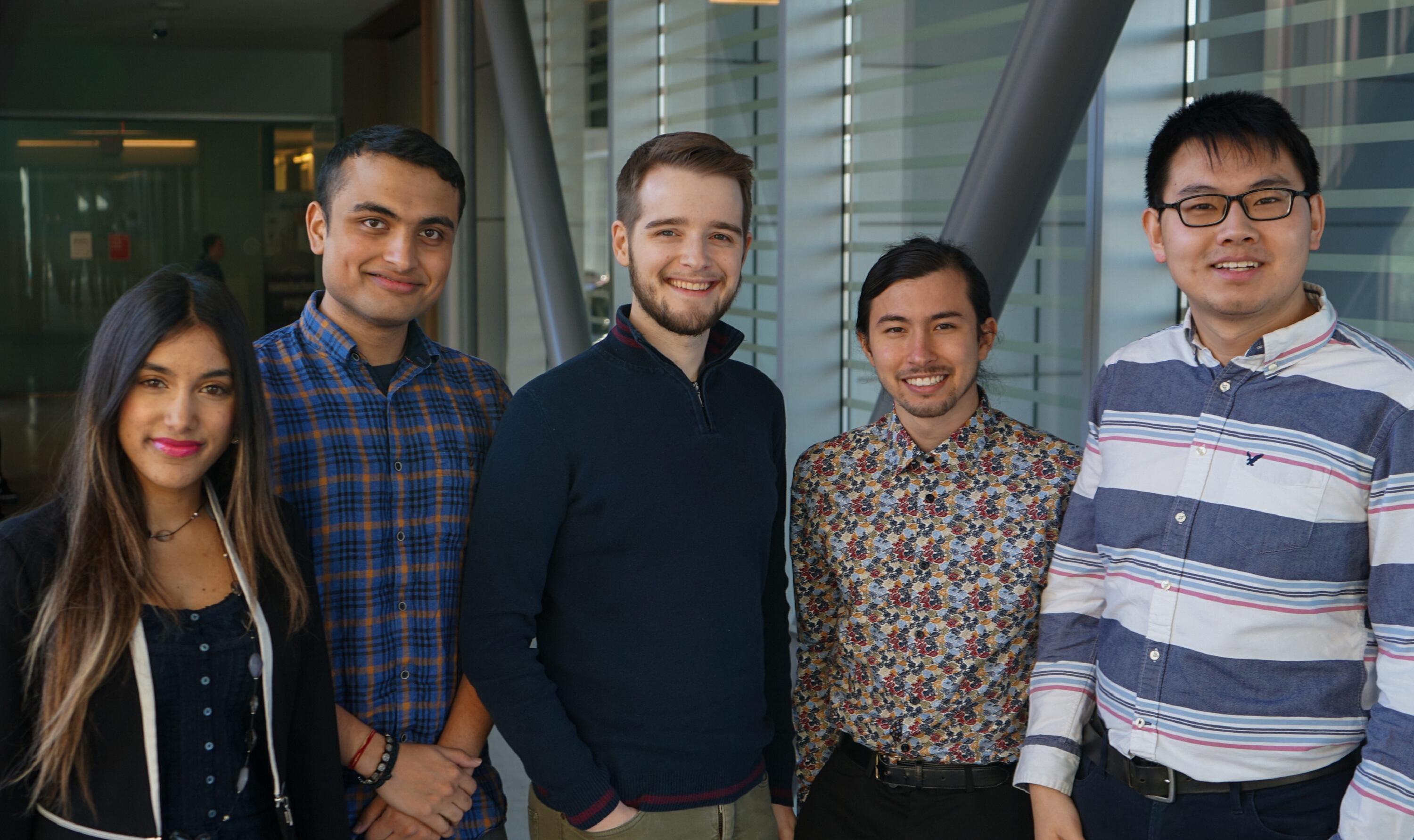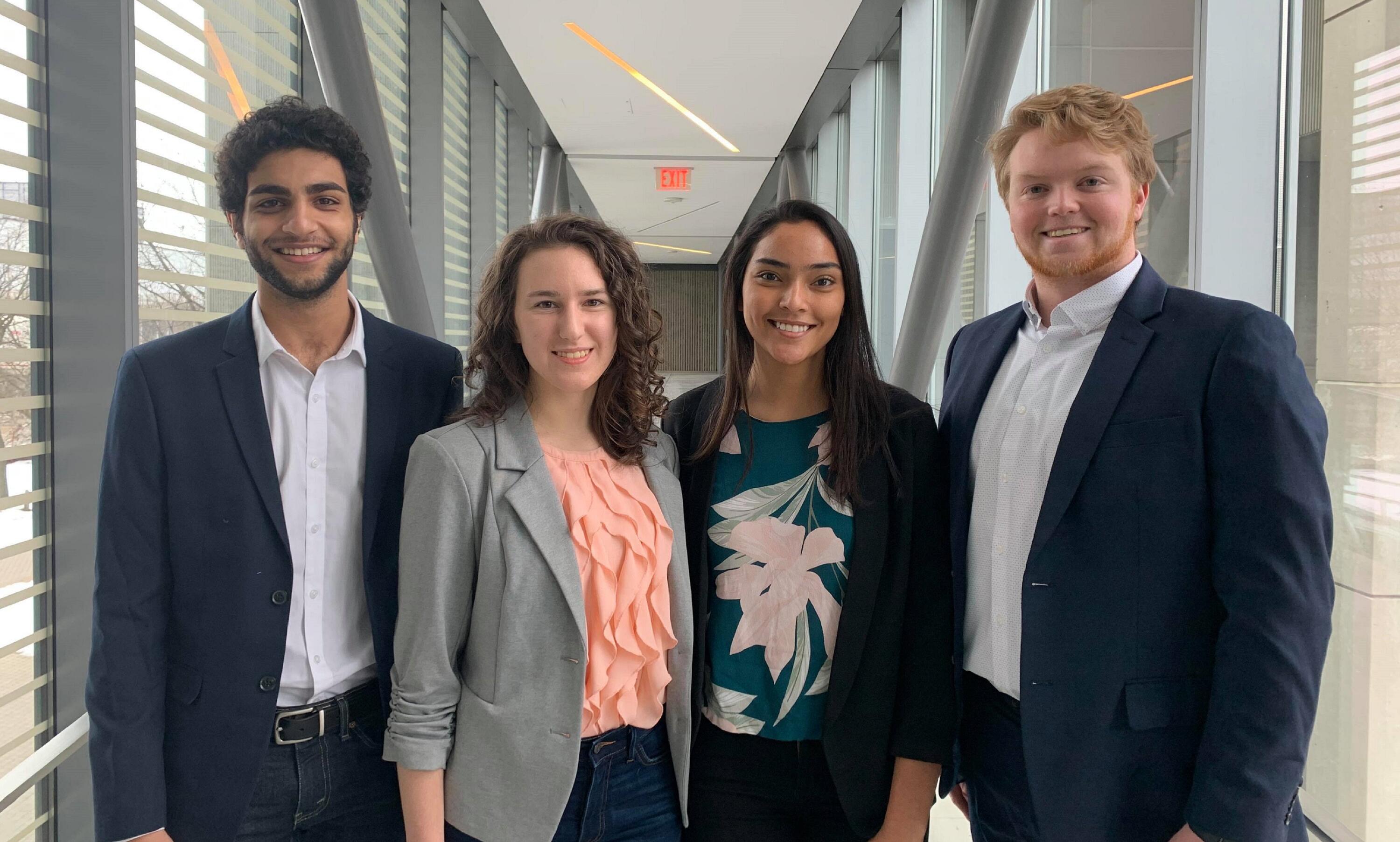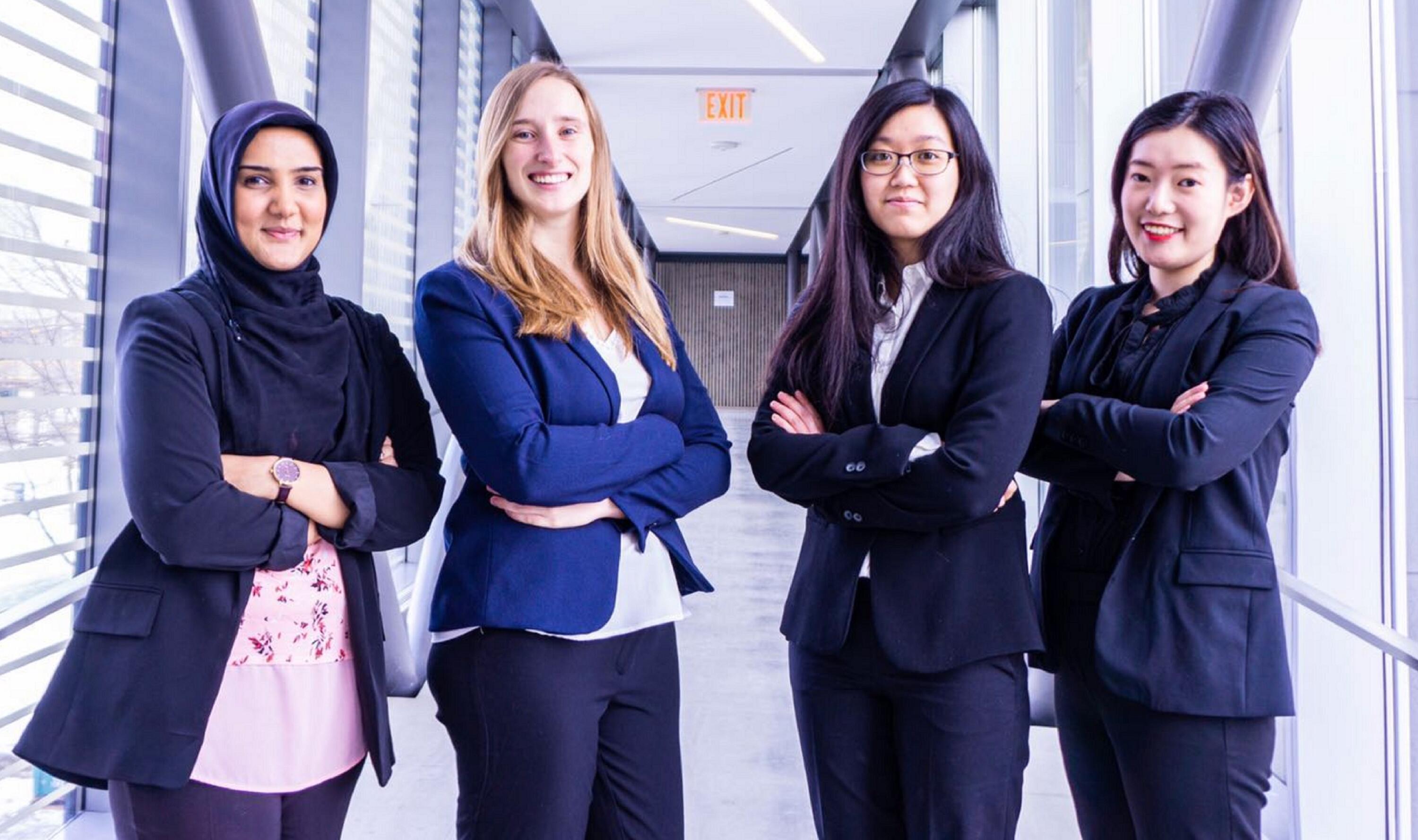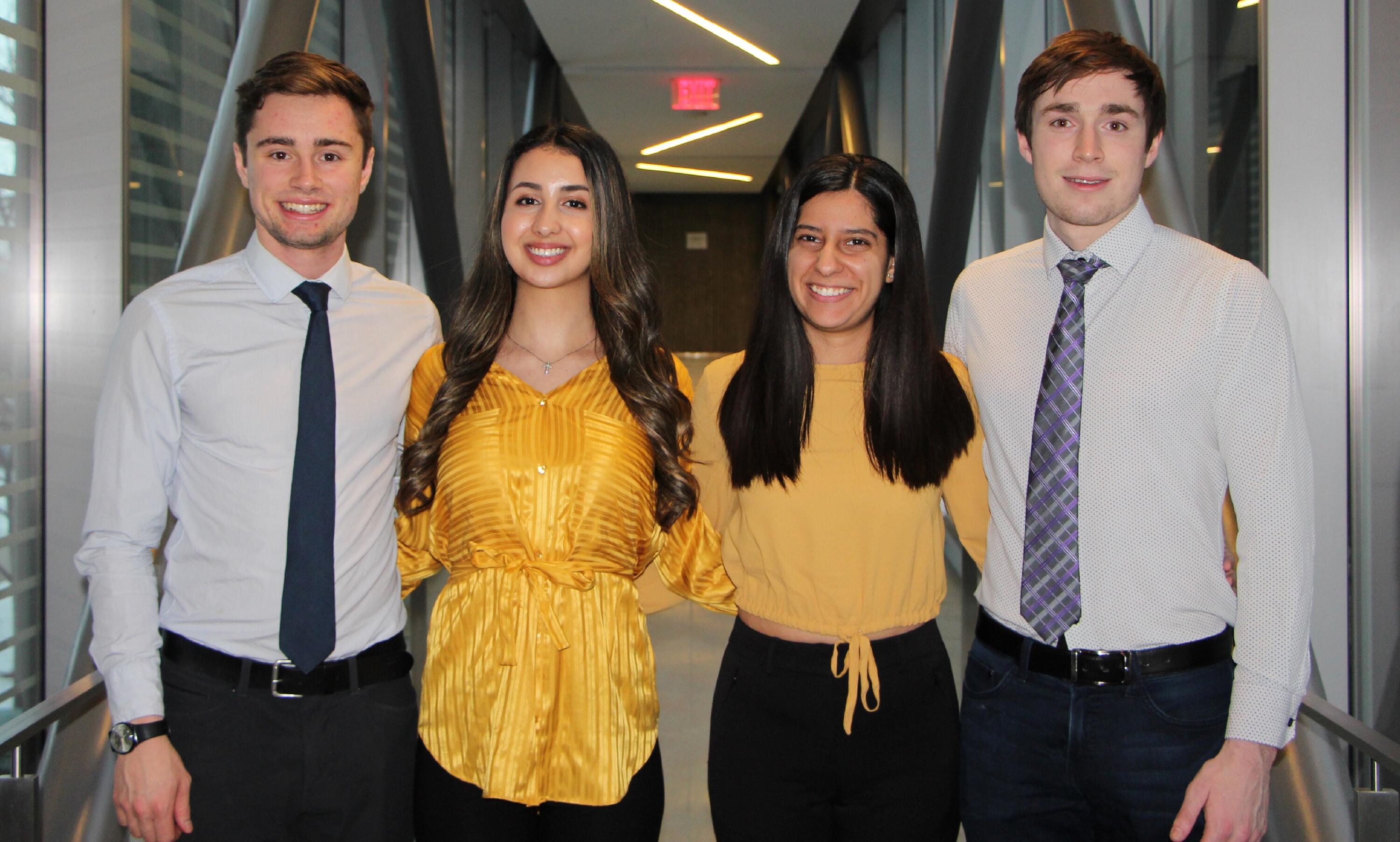When COVID-19 restrictions forced the Nanotechnology Engineering program to cancel its Capstone Design Symposium with just days’ notice, students quickly pivoted to present their own projects via online presentation seminars and honour the accomplishments of their classmates.
It was disappointing for students and faculty alike to miss the much-anticipated in-person event, which had been scheduled for March 20th. The Symposium normally involves face-to-face poster and prototype presentations of the innovative, hands-on projects to which teams have dedicated much of their final year of university. It is traditionally a celebration of their accomplishments and the beginning of the count-down to graduation.
Despite the pandemic-inspired format, the tradition of celebration continued. Students embraced the online symposium with creativity, enthusiasm and mutual support. Congratulations to all fourth-year students for your incredible achievements, including your resilience in a time of uncertainty and disruption.
Find out more about all of the exciting NE Capstone Design projects at 2020 Nanotechnology Engineering Capstone Design Symposium.
Special congratulations to the following teams, which won awards for their outstanding Capstone Design projects:
Scope
Team 8, known as Scope, won first place for their liquid crystal lens that is electrically tunable and allows for a camera to optically zoom without any physical movement.

Scope: Alisha Bhanji, Ishan Mishra, Holden Beggs, Fernando Peña Cantú and Zhenle Cao.
KnowStroke
Team 16, known as KnowStroke, won second place for their innovative sweat sensor that was combined with a series of off-the-shelf sensors to measure when the wearer is at risk of developing a heat related illness such as dehydration and heat stroke.

KnowStroke: Ahmad Lakhani, Eniko Zsoldos, Methely Sharma and Matthew Pley.
Hi-ρ Cells
Team 3, known as Hi-ρ Cells, won third place for their high-density (Hi-ρ) 3D bioreactor that can produce a high number of viable stem cells for the treatment of multiple diseases, including cardiovascular disease and leukemia.

Hi-ρ Cells: Fezza Haider, Arianna Skirzynska, Chelsea Leung and Xinci (Cindy) Yang.
Diffusiv
Team 10, known as Diffusiv, won the GM Award for the material they developed that changes colour in response to bacterial decay that occurs on spoiled meat and other food products.

Diffusiv: Connor Rupnow, Nina Jeorje, Heemal Parimoo and James Oswald.